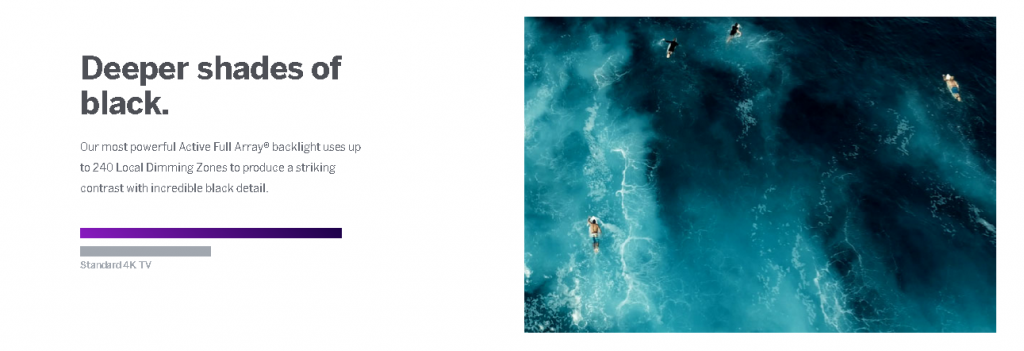One cool feature of Vizio’s line of smart TVs is the built-in Chromecast device. Chromecast, of course, is the streaming media adapter from Google that lets you play video and music through streaming services directly onto your TV. The various channels, including music and games, are organized into “apps” on Vizio TVs. Since these apps are software-based and run on the integrated Chromecast processor, keeping the apps updated is essential. This article will show you how to keep the apps updated on your Vizio smart TV.
There have been multiple generations of Vizio smart TVs, and the procedures for updating the apps are different for each one. However, there are two categories of Vizio TVs: the older VIA and VIA Plus models and the newer models (including the P-Series and M-Series) with SmartCast. I will walk you through updating the apps for both categories of TV.

Update Apps on a Vizio VIA or VIA Plus TV
The original system for adding apps to Vizio Smart TVs was VIA, which stood for Vizio Internet Apps. If you want to update apps on these models, you have to do it manually. This process requires removing the VIA app and reinstalling it or performing a firmware update (which does the same thing).
To update your apps only, you need to remove then reinstall each app:
- Press the V or VIA button on your remote.
- Select the app you want to update and select the yellow button on your remote.
- If you see Update, hit that. If you don’t, choose Delete App and then OK.
- Confirm your choice by highlighting Yes and pressing OK.
- Navigate to the App Store using your remote.
- Find the app you want to update or reinstall and press OK.
- Select Install and allow the process to complete.
Vizio uses the Yahoo platform to host these apps, so you will see the ‘Yahoo Connected Store’ when selecting them.
You will need a USB drive and about fifteen minutes to manually upgrade the firmware.
- Turn on your TV, navigate to Settings, then System to check the firmware version number under Version.
- Download the latest firmware for your TV model from the Vizio support website. Select Support and enter your TV model number to get the correct firmware. Compare it to the version listed on your TV and proceed if the installed version is older.
- Rename the file you downloaded to fwsu.img. This allows your TV to recognize it as a firmware image file.
- Copy the file to your USB drive.
- Power off your TV and insert the USB drive into your TV.
- Power on your TV. You should see a blue light on the TV telling you it has picked up the USB and the firmware image file.
- Once the blue light goes out, power off the TV and remove the USB drive.
- Power on the TV, and navigate to Settings and System to check the firmware version number under Version to ensure you’re running the latest firmware.
Update Apps on a Newer Vizio TV
Subsequent generations of Vizio TVs use SmartCast TV, which is a version of Chromecast. With Chromecast, you can use an app on your phone to cast content directly to your TV. These newer models do not require you to update your apps manually; they update themselves automatically when you aren’t using your TV. These models also update their firmware periodically, but you can do this manually if you want to. Vizio TVs equipped with SmartCast make much shorter work of updates. As long as your TV gets connected to WiFi, it should take just a few seconds to update your TV manually.
- Power on your TV.
- With the remote, select Menu and then Settings.
- Select System and Check for Updates.
- Confirm any updates if found.
You should see an on-screen progress indicator showing how far along the update process is. Allow the TV to update itself without interference, and your TV will reboot and load the latest firmware. You can now open SmartCast TV and see any new apps or features released with the update.

Frequently Asked Questions
If we didn’t answer all of your questions above, keep reading for more information about how to update apps on a Vizio Smart TV.

How Do I Set Up Amazon Prime On My Vizio TV?
It’s easy to set up Amazon Prime on Vizio because the extension is directly on the television. To log onto your Amazon Prime app, follow the steps below.
1.) Find the Amazon Prime Video app on your Vizio Smart TV home screen. It should be installed already.
2.) Click on the Amazon Prime Video app and log in using your username and password.
3.) Enjoy your Amazon Prime Video!
If you need to start over with your TV, check out how to hard reset your Vizio TV. If you need a firmware update, read how to update the firmware on your Vizio TV.
How Do I Update My Hulu App on Vizio TV?
Many of you may have noticed that Hulu won’t work on your television anymore, and Vizio addressed the Hulu not working problem on their website.
Vizio stated, “Some older VIZIO VIA devices will no longer be able to stream Hulu Plus. This is due to an upgrade Hulu performed to the Hulu Plus app. This affects multiple devices across almost all electronic manufacturers. There is no problem with your VIZIO TV or with Hulu Plus.”
If your television is a part of any of the models they listed on their website, you will no longer be able to watch Hulu.
Is Disney+ available on my Vizio Smart TV?
It depends. Any Vizio model that supports SmartCast TV (2016 or newer) is compatible with Disney+. Unfortunately, older models will not support the app.
Why can’t I update my maps?
If you have a SmartCast TV you can’t update apps. If the TV came preloaded with applications, updated come through when the developers release them. Other SmartCast TVs come with no apps to update.
You can only updated apps on the VIA (Vizio Internet Apps) Vizio TVs. Assuming you do have a VIA TV, the first step of troubleshooting is ensuring that your TV is connected to the internet. Next, turn your TV off and on again. Lastly, you can uninstall the app that won’t update and reinstall it with the newest version.
Disclaimer: Some pages on this site may include an affiliate link. This does not effect our editorial in any way.






![How to Manage Subtitles for CBS All Access [All Major Devices]](https://www.alphr.com/wp-content/uploads/2020/06/How-to-Manage-Subtitles-for-CBS-All-Access-All-Major-Devices-302x190.jpg)
![How to Manage Subtitles for Amazon Prime Video [All Major Devices]](https://www.alphr.com/wp-content/uploads/2020/06/How-to-Manage-Subtitles-for-Amazon-Prime-Video-All-Major-Devices-302x190.jpg)